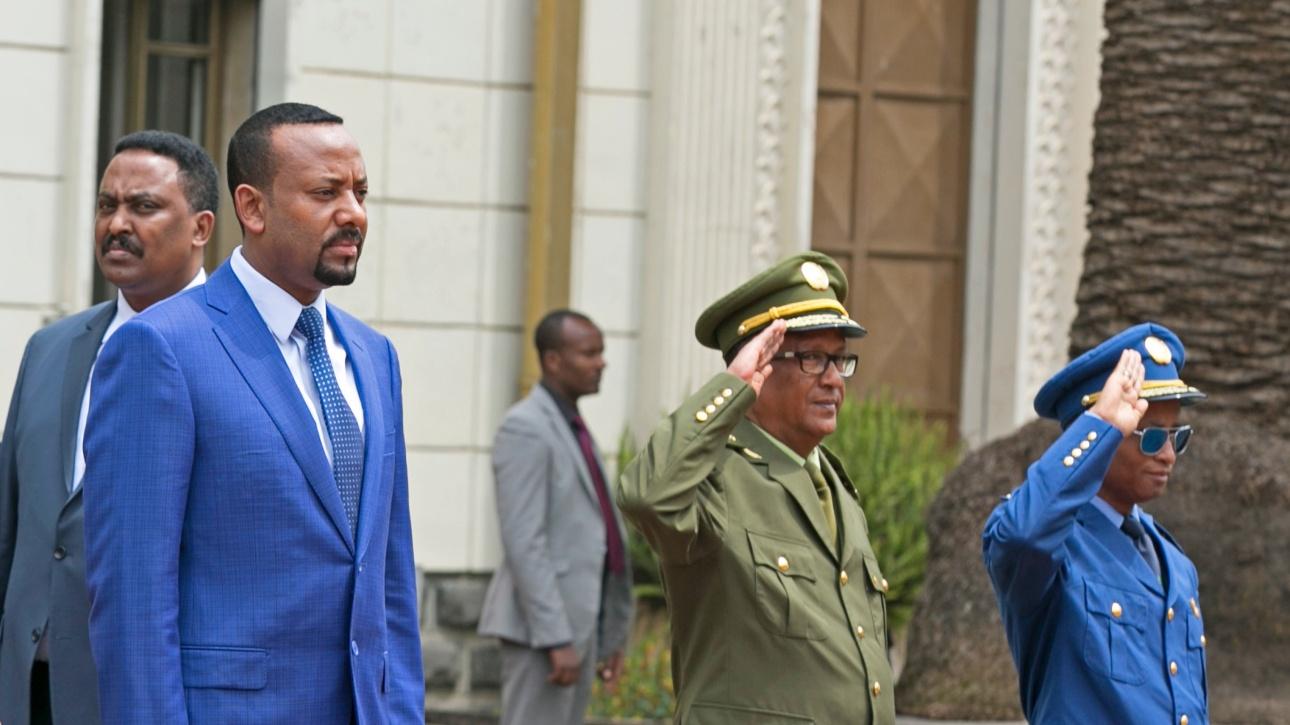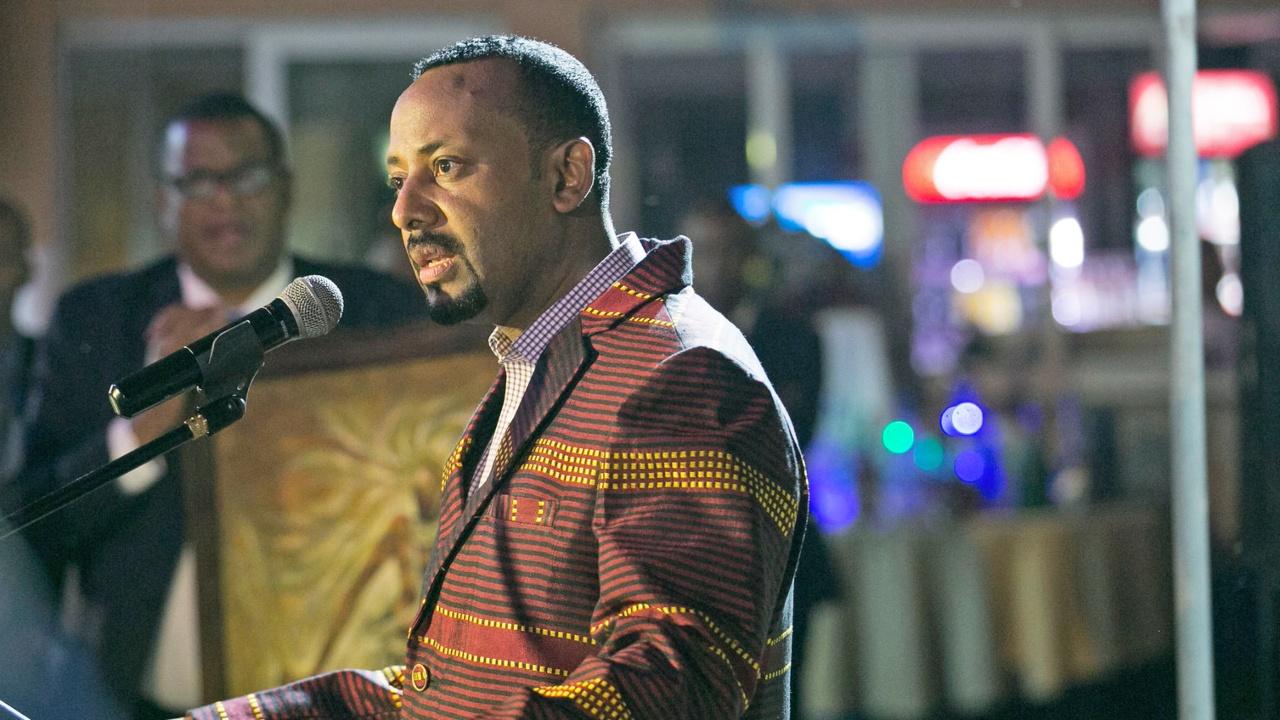After Guinea’s coup on 5 September 2021, the country is facing an uncertain outlook, with heterogenous democratic actors operating between the camps of former and new rulers. The African Union and ECOWAS are trying to appease the situation, but whether it will be sufficient to secure elections in 2022 remains unclear.
After the military coup against acting president Alpha Condé of 5 September 2021, the situation in Guinea remains tense and could lead to intervention by other African countries or civil war. Yet the current post-coup process could also be the last chance in generations for the country to transition into a functional democracy. Much will depend on how the pro-democracy camp on the ground assembles its rather uncombined factions and how it relates with African and international organisations, as well as with illiberal and authoritarian powers such as Russia and China, which are heavily involved in its raw resources economy.
Why the internal coup?
The elite troops who removed Guinean president Alpha Condé from office were created by the dictator himself for the protection of the nation against ‘terrorism’, as he had declared without clear definition of the term – internal or external, for example. Colonel Mamadi Doumbouya, commander of these elite forces, became president of the National Committee of Reconciliation and Development/Comité National de Rassemblement et du Développement (CNRD), which took power on 5 September. The CNRD did not allow Condé to leave the country. It presented a charter for ‘civilian transition’ on 28 September 2021, swore Doumbouya in as interim president in the same month and, on 6 October, appointed the former UN employee and agricultural expert Mohamed Beavogui as interim prime minister. The military junta promised to rely heavily on former UN personnel; that no member of it would compete in future elections; and that these would be organised for the earliest possible opportunity in 2022. The goal would be, as the junta repeatedly stated, only and exclusively the ‘transition to democracy’.
It is obvious that the coup was unconstitutional and thus unequivocally condemnable by the anti-coup mechanisms established by the African Union (AU), the regional economic organisation ECOWAS (Economic Community of West African states) and other continental and international bodies. Equally obvious is that the reasons for the events reached deep into the ousted government and could have been avoided with better governance. The three main origins of the coup were, first, the constant fuelling of ethnic divisions by the government and other forces involved; second, the socio-economic decline of the country due to corruption and misgovernance, combined with increasing repression and violence by the governmental forces; and third, the sell-out of Guinea’s riches by the regime’s elite.
In particular, anti-government sentiment over the past years grew not only due to dubious policies of the presidency, apparently at least partially in contrast with the constitution and its main institutions, but also because Guineans observed an increasing exploitation of the riches of their subsoil without being able to participate in the benefits. The ousted government multiplied the number of mining sites throughout the country and identified this as economic development. The contracts (bauxite, gold, diamonds) were often granted under obscure conditions. It was often more of a sell-off than thoughtful and rational exploitation. The resource extraction area of the economy became a source of covetousness and operations often related to corruption.
The visible part of these contracts was given to Chinese and Russian enterprises in forms that resembled the opacity of the period before 2010. Chinese and Russian representatives have ruled these areas as lords, with little respect for local populations. Russia’s heavy involvement has been underscored by its reaction to the September 2021 coup, as government spokesman Dmitry Peskov declared that Moscow was closely monitoring the situation because of the potential impact on global aluminium prices. Conflicts between Guineans and Chinese have frequently broken out recently, as in Boffa, for example. Similar to other sectors, the recruitment of workers in the mining area has been oriented towards their ethnic group and its affiliation to the government, to the detriment of the region’s young people. Youth revolts against this practice have been frequent in these regions. The damage to the environment (houses, rivers, fruit crops) has been considerable. As a consequence, health problems are likely to be expected in the near future.
The September coup came at a time when Guinea was on the verge of a major domestic conflict that could have had severe consequences for the country’s social and territorial integrity. Due to increasing ethnic rivalries, economic and financial shortages and violence, many people were afraid of an upcoming civil war and, according to accounts from the pro-democracy camp on the ground, wanted to get out of the situation but did not know how. Before the coup, the closure of borders to neighbouring countries, for security reasons, in violation of ECOWAS’ community rules, reinforced the feeling of an imminent crisis among most observers of Guinean social and political life. In addition, there were persistent and concordant rumours of the creation of an armed resistance against Condé’s government. Indeed, such a movement appears to have been born during a secret meeting of Guinean dissidents and opposition leaders between 27-29 March 2021 in the Mali-Senegal-Guinea triangle. According to information circulating in the democratic camp(s), they apparently planned to take action against the Condé government starting at the end of February-beginning of March 2022. This tense atmosphere was part of the reason for the rather positive reception of the coup by considerable parts of the population.
Steps towards elections in Guinea
The Guinean democratic alliance including the pro-democracy party ‘Bloc pour l’Alternance en Guinée’ (BAG), led by German exile Sadio Barry, who originally had ties with the ousted government, had an online meeting with the European External Action Service (EEAS) Cooperation and Development representatives for Guinea and West Africa on 28 October 2021. The result was to issue a call for domestic and international actors to support the transition to democracy without re-installing the ousted regime of former president Condé, as initially requested by the African Union and ECOWAS in response to the coup. This call came against an early threat of military intervention by the African Union and the announcement of punitive actions of ECOWAS. Both have – and reasonably so – established mechanisms to automatically punish military coups to prevent imitations. In October 2021, the pro-democracy camp recognised the legitimacy of these mechanisms but responded with the plea to give the military-led transition towards democracy at least a temporary (i.e. time-restricted) chance.
Whether this happens or not, any process will have to deal with the uneven composition of the democratic camp itself. There currently seems to be not one front, but several. The actions of former President Condé and opposition leader Cellou Dalein Diallo have not fostered a climate of trust among political parties in Guinea. The democratic opposition is organised into several groups, including seven well-known and independent parties (ANAD, COREDE, COPED, CARP, BOC, CPR and CPA). There are rivalries, but they find each other when the situation forces them to, as most recently in the election of the 15 representatives of the parties in the National Transitional Council (CNT).
The five most important of these organisations – ANAD, BOC, CPA, CPR and COREDE – have set up a platform of political inter-coalitions that was officially launched in Conakry on 9 October. BAG as a stand-alone party is talking with all these groups and tries to form an interconnecting platform. Condé’s supporters are in the process of dispersing since their party no longer has a clear leadership. The former ministers tried to meet to make demands to the interim government, such as the release of Alpha Condé. This has led to mostly negative reactions by the new junta and the pro-democracy camp.
Over the coming months and until the promised general elections in 2022, the role of the surrounding international institutions will be crucial but the exact pathway is difficult to predict. What can and what should these organisations do to improve the situation? Umbrella organisations with a ‘gatekeeper’ self-understanding such as the African Union (AU) were initially quick to condemn what they identified as a coup, calling for the release of former President Condé. They in essence followed ECOWAS and, as common with military coups, on 5 October 2021 released a catalogue of requests to the putschists. The EU has reacted more cautiously. It tempered the reactions of the junta, the political parties and parts of the Guinean people who wanted revenge against the Condé government for allegedly killing people and organising a constitutional coup. Most recently, the AU, ECOWAS and the EU have cautiously signalled that they in principle wanted to see a peaceful transition in Guinea. An ECOWAS delegation visited Guinea for three days at the end of October, signalling to provide more time. No more word from the Condé camp since.
Does all this mean that after the end of the nationwide curfew on 22 October Guinea is headed into a calmer period, at least until the next elections in about a year’s time? Hopefully. As the Ebola epidemic remains a threat, with UNICEF finding the funding gap for the response to the virus at 81% in June 2021, and as the educational and science sectors lie prostrate, every new government will be struggling to get things moving forward and on track. Given the situation, it will be a great achievement if a functional and reconciliatory democracy succeeds. This nevertheless remains wishful yet possible, as always at historic turning points. Positivity and hope could still prevail and create a pro-positive situation – especially if all actors involved are enabled as best as possible to participate, and if all those involved refrain from militancy and provocation and hold true to their pro-peace announcements and promises.
Photo: ‘Peace-building in Africa session | Davos, 24 January 2018’. Former Guinea President Alpha Condé. Credit: Paul Kagame. Licensed under CC BY-NC-ND 2.0.





